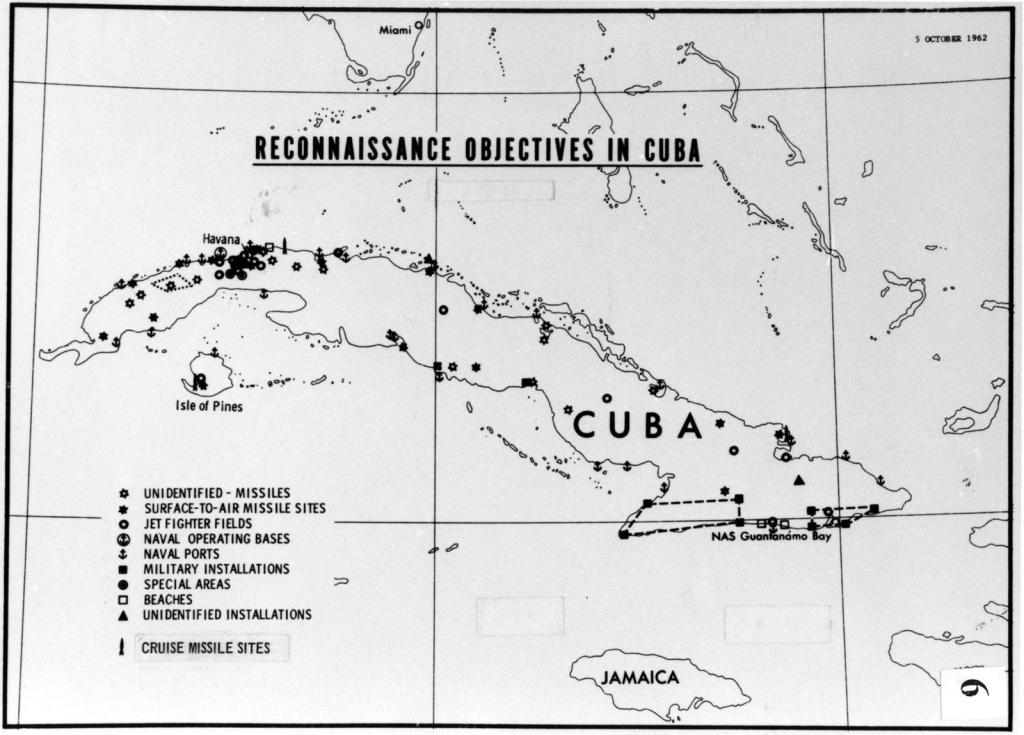I have been writing a book called The Global History of the Cold War, which is due out next year. In my next few blogposts, I will be describing some of the key points that emerged for me in this work, and particularly how they are affecting the way I might teach the topic, and the period.
In a sense, that “global” element in the title is obvious. Many Cold War conflicts happened across the Global South, and the underlying political divisions affected nations as far afield as Cuba and Brazil, the Congo and Somalia, Korea and Indonesia – not to mention military confrontations under the Arctic, and deep under the Pacific. But other implications are less obvious. When Americans tell the Cold War story, they often fail to realize that the same key events had very different meanings in other countries. Every country, every society, had its own Cold War, and viewed (and remembered) things differently. It can take a real exercise of the imagination to grasp that.
Let me take one specific (and spectacular) example. The most dangerous pivot of the Cold War happened in October 1962, with the Cuba Missile Crisis, when the world came close to nuclear devastation. Many Americans will know the key events of that story, as told by many fictional productions, such as Thirteen Days (2000), with its laser-like focus on the leadership of John and Robert Kennedy. But there are multiple problems with such accounts. Just to take one point, we often see that whole affair as a clear US victory, which is arguable. The Soviets actually got out of the crisis with most of what they wanted when they first placed those missiles: they secured a US pledge not to invade Cuba, and maneuvered the Americans into removing missiles from Turkey and, possibly, Italy. From the Soviet perspective, that was not, by any means, a shabby outcome. (The Turkish aspect of the story is now well known, the Italian angle is more controversial).
But think about that story in terms of how it was viewed and recalled in other major nations. Even in the US’s closest allies, plenty of people – and by no means on the far Left – were appalled by what they saw as US adventurism and irresponsibility over Cuba. In Britain, Christopher Hitchens observed that “Like everyone else of my generation, I can remember exactly where I was standing and what I was doing on the day that President John Fitzgerald Kennedy nearly killed me.” Hitchens could be a curmudgeon, but plenty of mainstream and indeed elite figures sympathized with his critique. It is important to get beyond the saint-and-martyr image that was applied to JFK after his assassination.
In many countries observing the US-Soviet confrontation, there was a strong element of “A Plague on Both Your Houses-ism.” Moreover, the overtly pro-Soviet far Left was very strong across Europe. At this time, the Italian Communist Party could count on around 25 percent of the national vote, and the French Party was not far behind that figure in their country. Anti-nuclear activism was running very high throughout the various Allied nations, including Japan, and fairly or otherwise, much of the rhetoric was targeted against “cowboy” US administrations and generals.
Any and all sensible people who followed the news were frightened by the 1962 crisis, and appalled by the possible outcome. But for many, this was only a brief distraction from the other critically pressing concerns that they were facing at exactly this time. Again, look at Europe. Very high on the list of contemporary crises was the savage war that France was fighting against the anti-colonial revolution in Algeria, and which raged from 1954 through 1962. Yes, it was coming to an end in 1962, but in appalling circumstances. In 1961-62, France itself was repeatedly on the verge of right wing coups d’etat and outright civil war, and the Algeria’s white European settlers had organized an extremely dangerous right-wing terror movement called the Secret Army Organization, the OAS. Through 1962, multiple Western states and underworlds were deeply involved in arms-trafficking and conspiracy. Just to take a view from the popular culture world, if you ever read accounts of the Beatles’ time in Hamburg in that year, you will notice the profusion of references to gun-runners and gangsters in the areas where they worked: Hamburg was a key center for that Algerian trade.
Tensions reached dreadful new heights in July 1962 when the Algerian revolutionaries – Arabs and Muslims – slaughtered many white European settlers in the city of Oran. The number of dead ran to several hundred, and possibly more. (Before anyone points this out, there certainly had been other massacres of civilian Arabs by Europeans in the recent past). The Oran affair still echoes on the French Right today, and it laid an essential foundation for later French prejudices against Arabs and Muslims. It also drove the OAS to raw fury. In August, a squad of three assassins came very close indeed to killing President de Gaulle when they ambushed his car as it drove through Paris. During what they called “Operation Charlotte Corday,” they fired some 200 shots at De Gaulle, and put fourteen bullets through his vehicle. Plotting assassination attempts on de Gaulle became one of France’s fastest-growing industries in that year. For fans of JFK conspiracy theories, one of the more elaborate versions draws attention to a couple of lethal OAS veterans from those plots who were reportedly arrested in the DFW area just after that shooting in November 1963.
By the time of the October 1962 crisis over Cuba, then, many French people were wondering whether their own country was on the verge of a deadly internal war. Then add into the equation the influx of a million-plus desperate refugees from the new Algeria, both European settlers and Arabs who had fought on the losing French side. Even without the nukes, these were alarming times.
During the Cuba crisis, by far the most threatening day was October 27, when US and Soviet forces repeatedly came close to actual armed combat. But in Europe, the date had a totally different resonance. For some years, Enrico Mattei had made Italy’s oil corporation ENI into an enormous power in international business and politics, while he became a key player in world affairs. It was therefore a very significant European and indeed global event when he died in a plane crash precisely on October 27, almost certainly as a result of a bomb (some think that his aircraft was shot down).
The crime remains officially unsolved but the Sicilian Mafia probably did the actual dirty work. As to who paid them, the candidates are numerous. Mattei’s dealings had infuriated multiple key rivals, including the major Anglo-American oil companies, the Seven Sisters, a phrase that Mattei either coined or popularized. Indeed, Mattei posed by far the greatest threat to the Sisters’ hegemony until the OPEC crisis a decade later. For multiple reasons, the CIA viewed Mattei with deep suspicion. The final straw came with Algerian independence, when the country’s oil concessions, and its vast reserves, were suddenly up for grabs. Mattei’s Algerian dealings enraged the French, and their overseas secret service SDECE, which at this point regarded assassination as a standard tactic to an even greater degree than the CIA. SDECE had run up an impressive total of African anti-colonial leaders who perished mysteriously in the late 1950s and early 1960s. Plane crashes were a French specialty. But the idea of using “accidental” plane crashes to remove high profile enemies was much in people’s minds in late 1962, having been used just a year previously to take out the UN’s Secretary General, Dag Hammarskjöld. Sadly, that is not one that even I can blame on the French.
Whichever candidate we favor in the Mattei case (I have little doubt that it was SDECE) the affair remained an obsession for European politics and journalism for decades to come, a close facsimile of the JFK assassination in the US. Journalists investigating the Mattei case were still being murdered and disappeared into the 1970s.
I can’t prove it, but I suspect that Mattei’s assassins deliberately chose the height of the international missile crisis to carry out the attack, because the world’s media would be so focused on those other matters. Never let a good crisis go to waste.
These are a couple of instances of what was going on elsewhere in the world, and there are plenty of others. Both China and India, for instance, were naturally deeply concerned about the Cuba affair, but they also had their own problems. Precisely during the “thirteen days” of the Cuba crisis, those two Asian giants were fighting an open shooting war. Casualties were mercifully light by the standards of modern warfare, but the conflict left a long shadow for both countries. Then as now, these were the world’s two most populous nations.
So if we look at the Cuba crisis through global eyes, we see a much broader range of views than we might think just from the American perspective. But the most shocking lesson, perhaps, is that many societies around the world had more immediately pressing matters on their minds.
I end with a trivia note, or (again) a speculation. In the early 1960s, France’s SDECE was responsible for a lot of mayhem on the international scene, including assassination, terrorism, and drug dealing on an epic scale. In full, SDECE was the Service de Documentation Extérieure et de Contre-Espionnage (External Documentation and Counter-Espionage Service). In 1961, the well-connected former British spook Ian Fleming published his Thunderball, which introduced the world to the fictional organization SPECTRE, the Special Executive for Counter-Intelligence, Terrorism, Revenge and Extortion. Just think of Ernst Blofeld and his Persian cat. Surely, SPECTRE was an oblique reference to SDECE. I can’t think why else the “counter-intelligence” thing is there, unless it is recalling the “counter-espionage” of SDECE. I like to think of SDECE as the real-life SPECTRE, but less cuddly.














